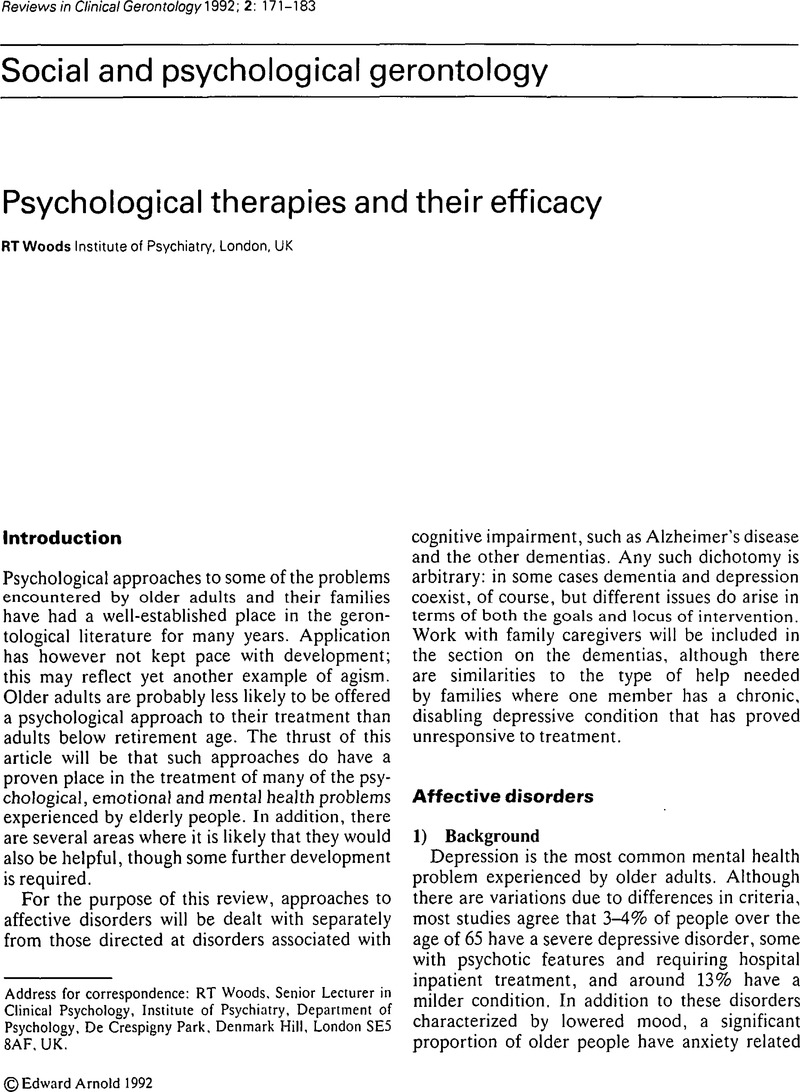Crossref Citations
This article has been cited by the following publications. This list is generated based on data provided by Crossref.
Moriarty, Joanna
and
Levin, Enid
1993.
Interventions to assist caregivers.
Reviews in Clinical Gerontology,
Vol. 3,
Issue. 3,
p.
301.
Karlbauer-Helgenberger, Franziska
Zulley, Jürgen
and
Buttner, Peter
1996.
Lehrbuch der Verhaltenstherapie.
p.
415.
Blanchard, M.
and
Graham, N.
2000.
Psychiatrie spezieller Lebenssituationen.
Vol. 3,
Issue. ,
p.
239.
Karlbauer-Helgenberger, Franziska
Zulley, Jürgen
and
Buttner, Peter
2000.
Lehrbuch der Verhaltenstherapie.
p.
517.
Blanchard, M.
and
Graham, N.
2001.
Contemporary Psychiatry.
p.
887.





